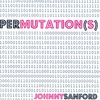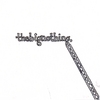 (the inner workings of a poetic terrorist)
(the inner workings of a poetic terrorist)Henry David Thoreau once wrote, “reading is for the uninspired.” I didn't understand at first, but then it came to me like a sock-shock from the carpet. If you were inspired, it would be you that was doing the writing instead of the reading. He then went on to say that whenever inspiration struck, he would immediately put down the book and work on his own creative works.
It is the passive, yet subjective engagement of reading in which we become inspired to create our own works. In part, this is a book about inspiring you to go out there and to start writing that novel, song, or whatever it is you want to create. Perhaps you’ve already put this book down. If you have, good for you, but tell the rest of your artist friends how inspired you became after just the introduction of the Starving Artist's Guide! The other part of this book is about the finding the means to achieve such ends without feeling mentally and physically exhausted by the job you do to keep afloat financially. You could figure this out on your own, of course, but consider this a telescope that allows you to see some of the potholes that already exist on the windy, exciting and sometimes dark road of artistic expression. If you’re still here, read on, in the hopes that you put this book down sooner or later and continue on your artistic quest.
There are a few things I do when trying to tackle writer’s block. There are a few tried and true methods to beating writer's block for good. First, simply look at your creative environment. Is there a television on somewhere in the background? Loud noises that aren’t helping? If so, you should take your television, unplug it and throw it out the window. Please make sure there isn’t anyone directly below. I am serious. Television is evil. It will kill every ounce of creativity you have. Every minute you sit and watch television is one minute of experiencing a creative vacuum. As Bill Hicks used to say in his comedy routine, “watching television is like taking black spray-paint to your your third eye.” Use your television to watch good movies and keep up on politics via the world news. And forget about actually paying for cable! It's a waste of money! Watch The Daily Show and The Colbert Report and other good shows on the internet and save yourself $360 a year. Tired of the bunny ears and fuzzy PBS shows? Go out and get yourself a digital converter box for about $50. You can even go to dtv2009.gov to get a $40 coupon from the U.S. Government for it.
If a neighbor or roommate constantly makes noise that you can’t stand, man up and ask him or her to quiet down. This is your apartment too, remember! (If it’s you that is making the musical dissonance, there are some easy ways you can soundproof your room in order to save others from grief. See References for Musicians on page XX) If you can’t change either of these things, find a quiet place like a library or park when its nice out to work on your craft. Cafés are nice and quiet too, but usually want something in the form of currency in exchange for sitting there for eight hours.
There are some days in working on a writing project that are simply not conducive. If you find yourself at a standstill on one creative venture, a good way to grease up the wheels creatively is to either start a journal or another project altogether. Keeping a journal not only will be a valuable look into your past life as an artist in the future, it also will keep your writing sharp and your stories concise and to the point. Collaborating with different writing partners can be a breath of fresh air from writing alone.
If you are simply uninterested in recording your waking life as an artist, an interesting alternative to keeping a regular journal is to keep a dream journal. Many times your subconscious is trying to tell you something when you have a creative drought. If you are attuned to it, you can find out exactly what it is by recording the dreams you are having. An excellent resource for understanding dreams is the book Conscious Dreaming, by Robert Moss. It goes in depth about how to become conscious within your dreaming life, as well as how to interpret what they might mean.
Curiously enough, when playing music came to a standstill last year, I had a dream that manifested itself into the basic outline for an entirely different project. I then was able to map out a ten-episode plot for a graphic novel, which I am currently working on with a graphic artist. In this instance, I went from a creative standstill musically to a flood of creativity in a completely different medium. Similarly, Einstein was said to have drawn deep insight from his dream-life, constructing his ideas about relativity from an early morning dream. Watch the movie Waking Life, directed by the great Richard Linklater for a surreal and visceral adventure into the dreamscape.
Exercise, meditation and music for me are also key motivators in my creativity.
If you keep your body fit through exercise, you will find it easier to write and less tired than you get from watching television for two hours. Practicing meditation and “getting away” from constant stimulation via television, radio and advertisements helps create a palette in which the inner psyche can create art. A great place to go is the ocean to clear your mind. There are free ways to keep in shape, instead of buying a gym membership that will be a drain financially. This will be covered in the chapter on exercise.
There will be days that you just won’t want to create art. I’ve heard stories about professional writers who force themselves to write a certain number of pages per day. I leave this to your discretion. Remember that you are not yet a professional. My argument is that if you feel unable to create art, it is probably for a good reason. Personal problems, depression, and the like are often conduits for art to take shape. But if these issues become too much of a weight on your shoulders, perhaps you should look to friends and family for help before inadequately dealing with it alone. Can art be forced? I suppose it can, but what will be the result is something that is not necessarily something you will be happy with. A good example of melancholy art is one of my favorite singer-songwriters, Elliot Smith. Almost every song he wrote is drenched with beauty and sadness. His death seemed untimely and yet somehow poetic.
Always remember that eventually, creativity will come flowing like water that bursts through a dam. It also pays to change mediums every once in a while; next time you can’t write a song but still feel inspired, try painting or drawing or writing. Creative forces usually directs themselves, and you must be there with the right materials.
The tried and true best way to defeat writer’s block, or any creativity block for that matter, is to actively experience art being performed by professionals. On any given night in New York City, you can attend any of the events listed below. A source for this can be going to see an author do a free reading, or go to a professional artist's gallery. Personally, going to see an improv-comedy show is the equivalent of an adrenaline shot to my creative ego. Something about creating successful art on the turn of a dime in the form of gut-laughs inspires and renews my own artistic endeavors. It is more real and more powerful than any episode of Saturday Night Live I’ve ever seen. You can also see tapings for most of your favorite talk shows for free by getting tickets ahead of time online. Seeing live music also has a similar effect on my ability to create art. It takes away the camera lens between the audience and the musician, creating a visceral and entirely unique event in time and space that a recording cannot match in the slightest.









No comments:
Post a Comment